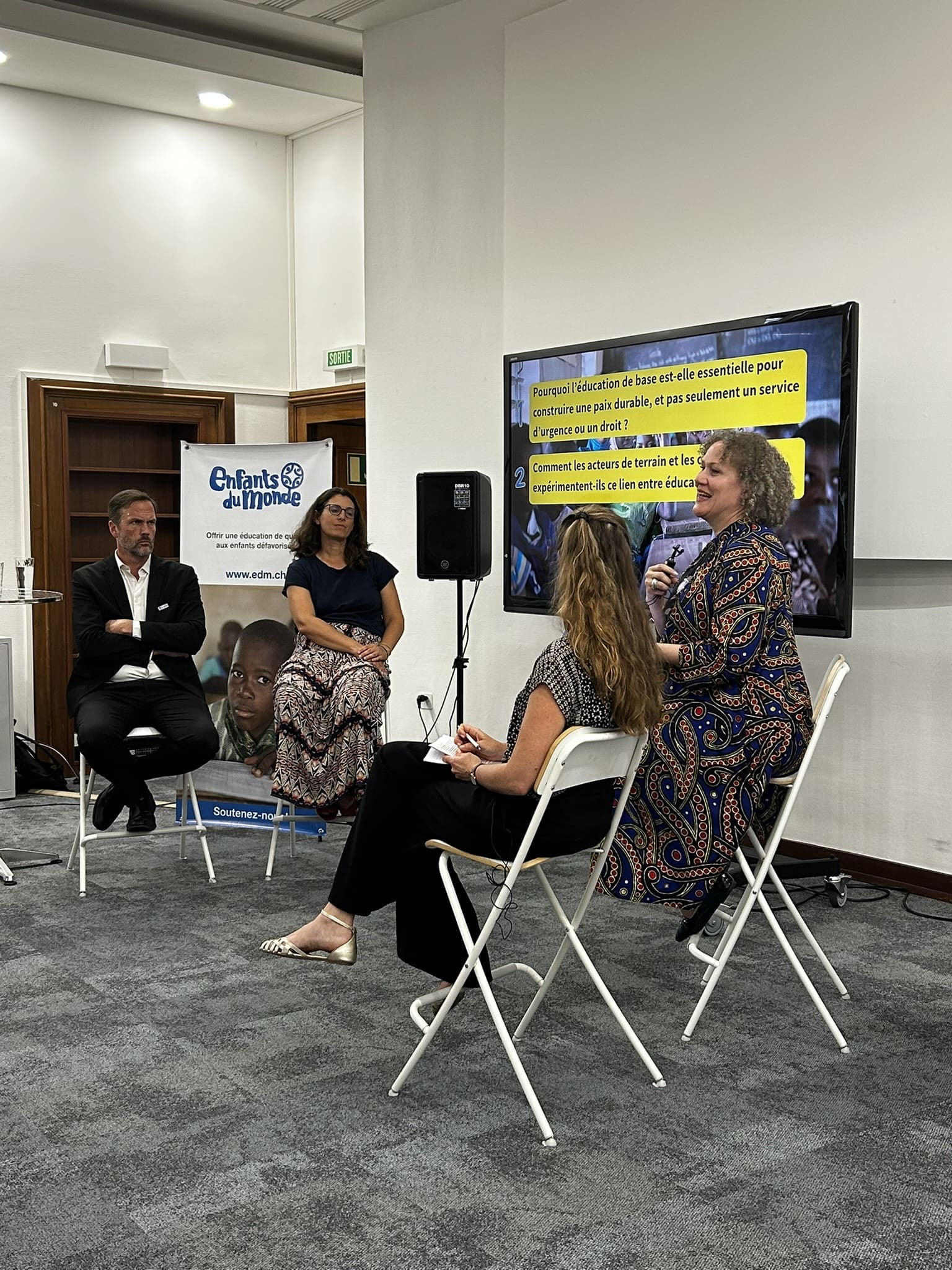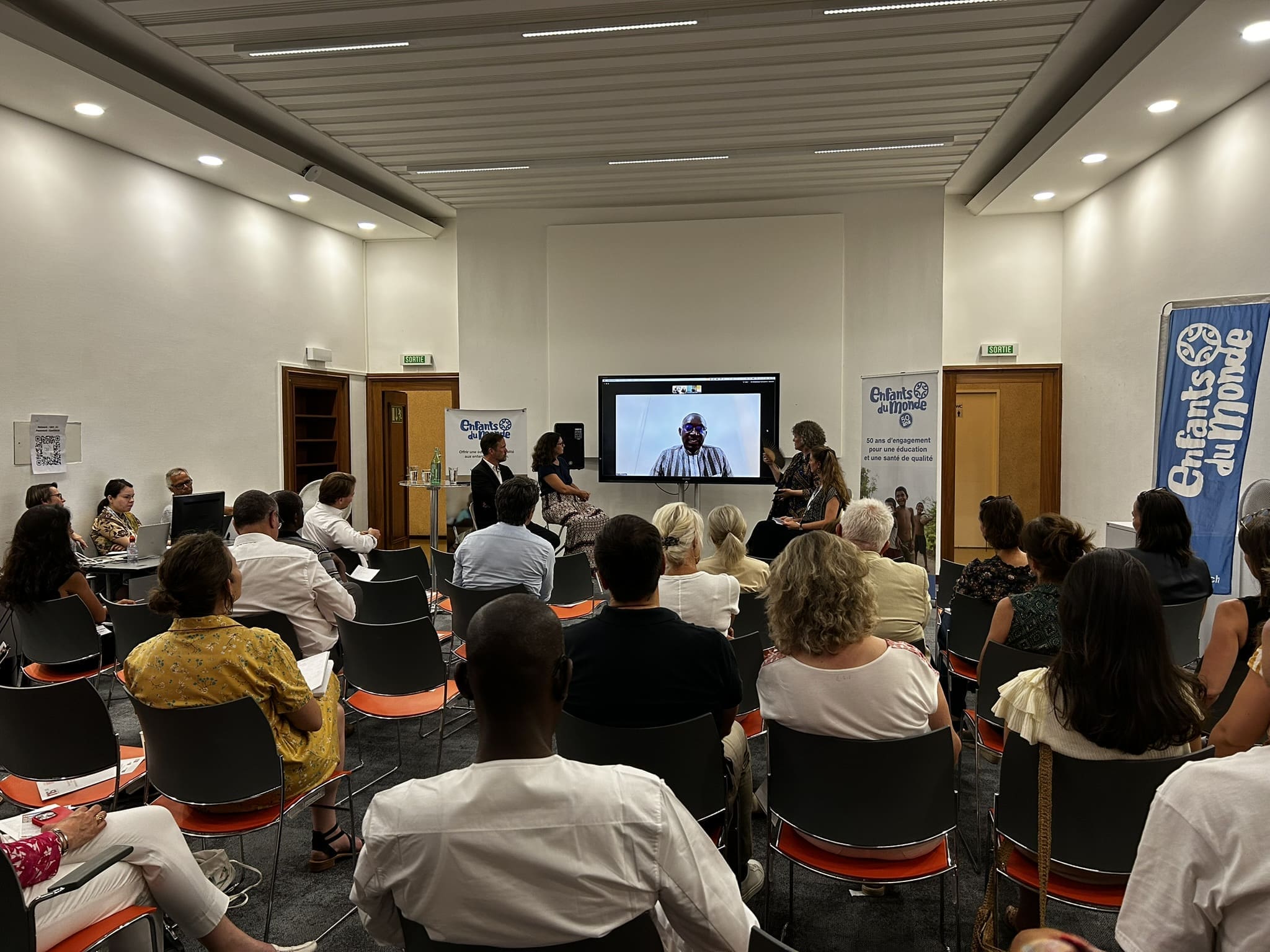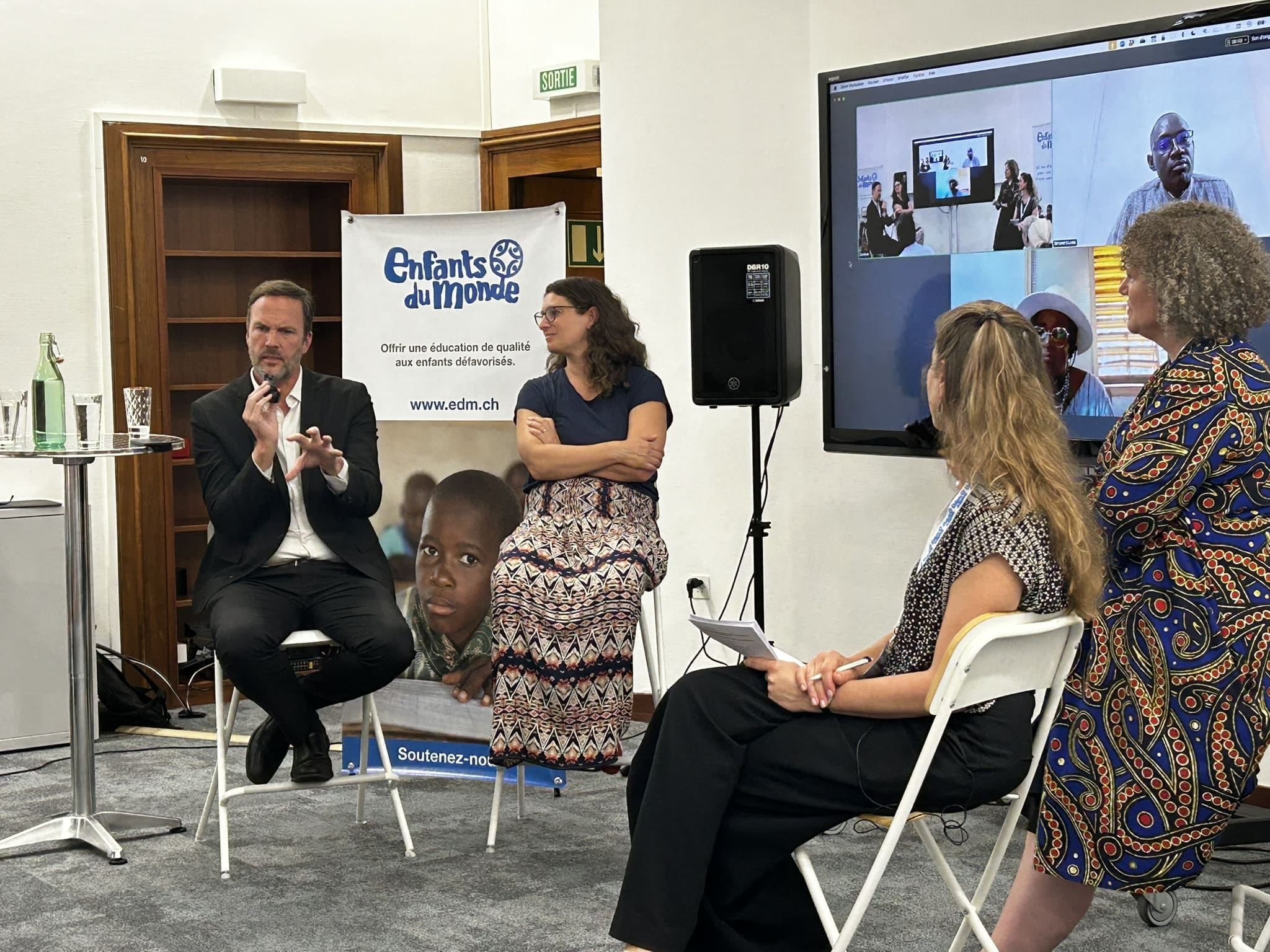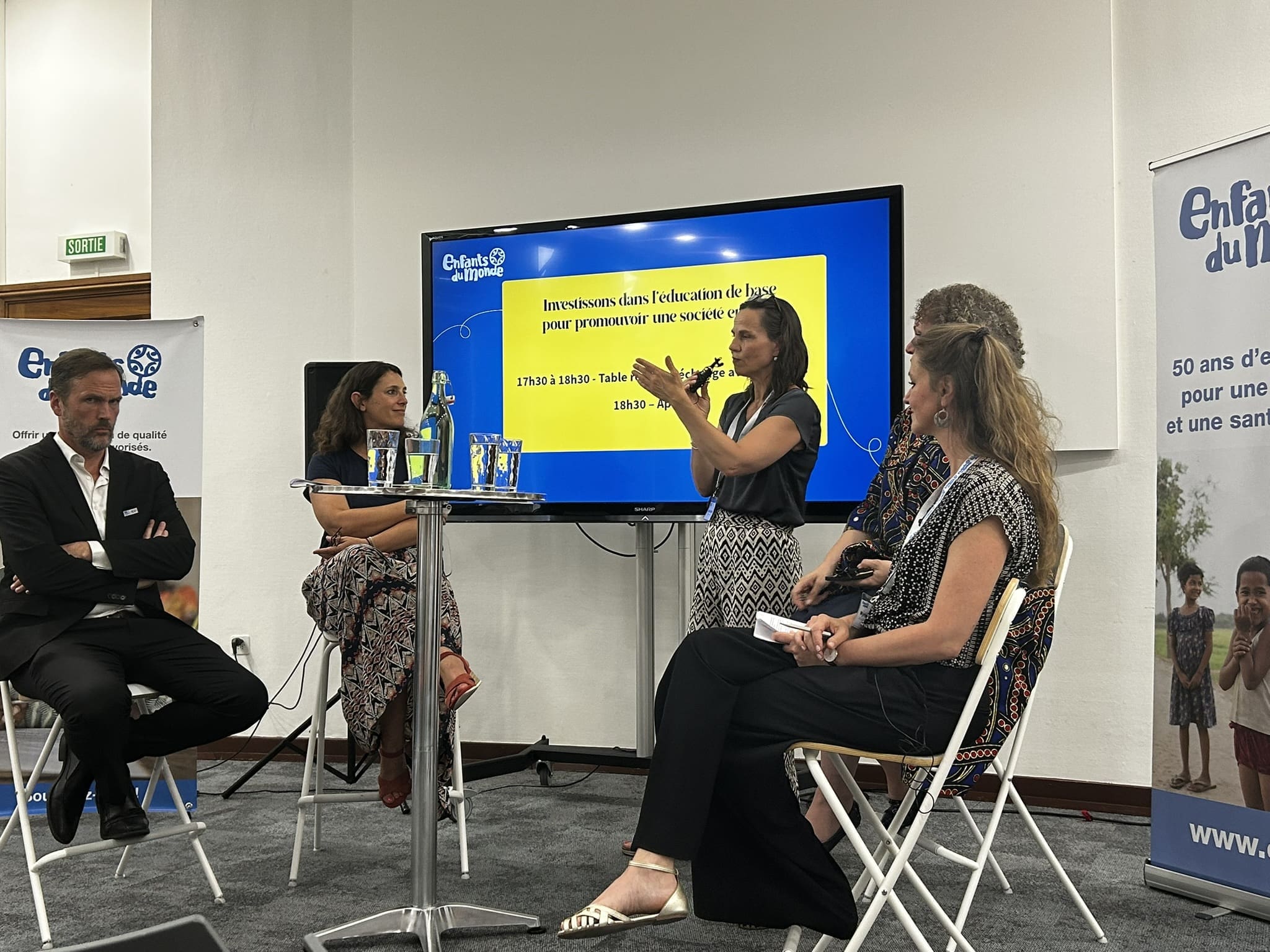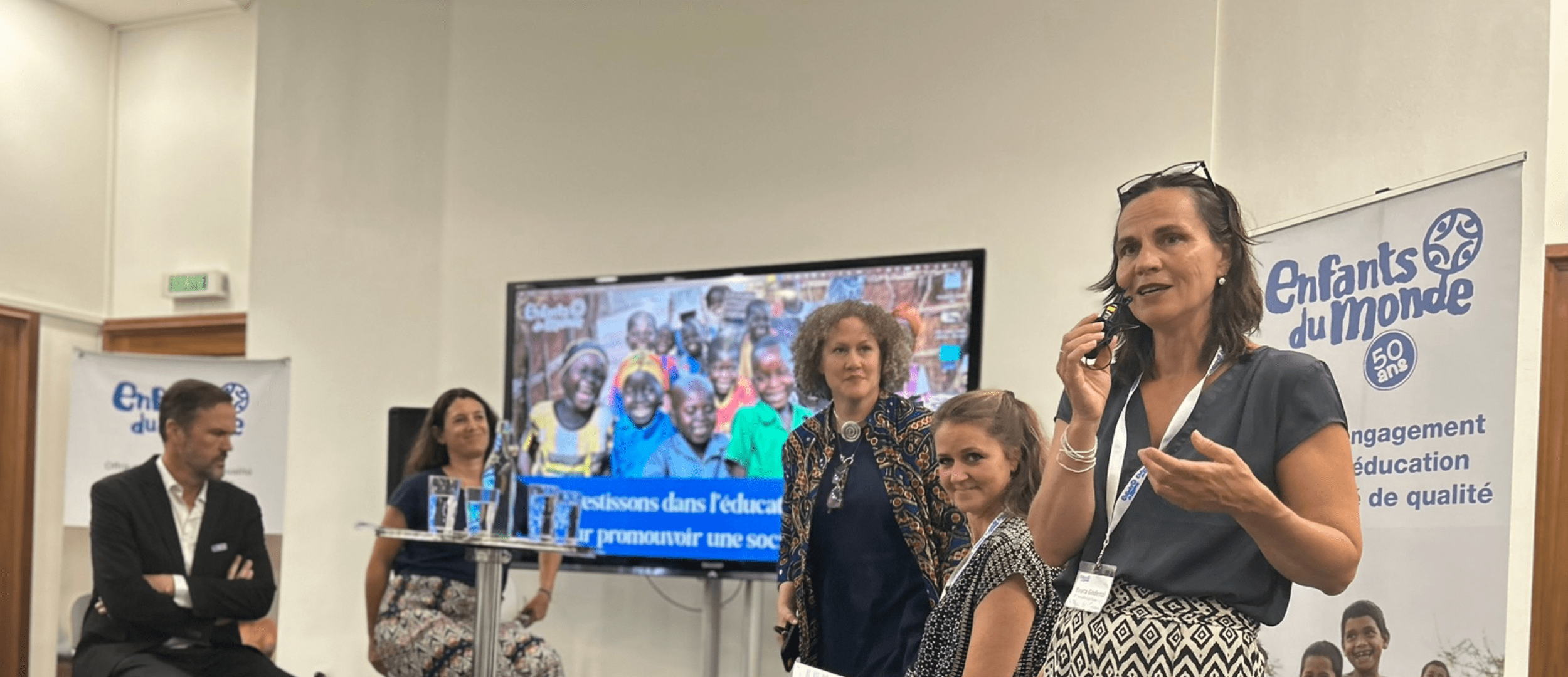
Despite being one of the most effective tools for ensuring lasting peace, basic education remains severely underfunded, particularly in conflict-affected and fragile contexts. As international aid budgets shrink and priorities shift, education is often relegated to the back burner in favor of short-term emergency measures. Our roundtable discussion on June 26 was a call to refocus priorities and recognize education not as a cost, but as a foundation for resilient, just, and peaceful societies.
A diverse Panel of Perspectives
Moderated by Myriam Gallio, our Deputy Secretary General, the round table brought together:
- Koumbou Boly Barry, former United Nations Special Rapporteur on the Right to Education and former Minister of Education of Burkina Faso
- Miren A. Bengoa, Director of the Swiss Solidarity TV Fund
- Conrad Hughes, Director General of the International School of Geneva and Senior Fellow at UNESCO
- Ouoba Simané, Education Program Officer at Enfants du Monde in Burkina Faso
- Moira Faul, Executive Director of NORRAG and Researcher at the Graduate Institute of International and Development Studies in Geneva
His testimony is a powerful reminder that education is a form of protection. It builds resilience, creates opportunities, and improves social cohesion—if it is tailored to the local context, inclusive, and adequately funded.
What’s Next?
As traditional donors continue to withdraw, we call for a stronger and more strategic commitment from foundations, private actors, and public partners.
The evidence is there. The approaches have been proven.
Now is the time to scale them up.
Because one thing is certain: there can be no lasting peace without inclusive, quality education.
